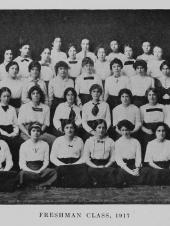 From College Hill to Cuba
From College Hill to Cuba
ANA PEÑA HASS 1917
An organizer for worker’s rights during the Great Depression, Anna Peña Hass 1917 was later arrested and tried by the Supreme Court for her involvement with labor unions and the Communist party.
On her time at Brown:
- “As spring approached, [it was] great fun preparing for Maypole Day, May Day… I can remember dancing in that Maypole dance, and really it was kids’ stuff. But at the time, we thought it was quite professional. Now that I look back on it,'What are you doing in college, running around a maypole?’... It was, I guess, just a little bit of post-high school thing, beginning-college thing, getting us acquainted.”
And on her later activism:
- “The city broke down completely feeding the people…because we had no welfare programs or anything like that – and the Communist Party was doing it, so I got very interested. Then, my two boys finished high school…but the Depression wasn’t over yet, and we were moving for the boys to go to the state university in Champaign, Illinois. So we moved downstate, and downstate I joined the Communist Party.”
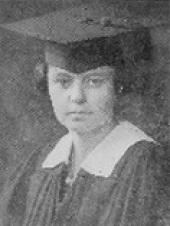 Ahead of her time
Ahead of her time
RUTH MAY B. Lubrano 1923, P'52, GP'91
Ruth May Bugbee Lubrano 1923 worked for the Rhode Island Birth Control league from 1938 to 1958, educating women about their reproductive health in spite of social stigma at the time around these issues.
- “Well, when I first started at the little place, [it] was just about opening. There had never been anything like Planned Parenthood, and it was a no-no subject publicly, no publicity to speak of. If any of the educators in that particular kind of work attempted anything publicly, they were shushed. So, gradually, it became accepted a little. It was not called Planned Parenthood. It was called…Rhode Island Maternal Health, so that was more acceptable as a name, but the main function was for birth control and health education as far as reproductive organs are concerned.”
 A voice for the war effort
A voice for the war effort
Judith Cohen '44 AM'48, GP'02
After earning an A.B. in English from Pembroke during World War II, Judith (Weiss) Cohen ’44 later developed her passion for writing as a journalist and enlisted in the Women’s Army Corps (WACs).
On her time at Brown:
- “We had an organization called P.A.W.S. [Pembroke Auxiliary War Service] and I remember, I wrote a big story about it for the Providence Journal….We did all sorts of things [for the war]. I took all my mother’s silver wedding gifts that she never used, and I gave them away for scrap metal…My last semester, or maybe year, I went to the Rhode Island Hospital every Sunday morning and served lunch in the wards.”
On her later career:
- “I ended up getting a job on a newspaper that was being printed for servicewomen. And it was a weekly newspaper, and I was the editor of it, and I wrote stories and so forth. And I worked at that for about four months, lived in New York, and worked on the paper. And then I decided that if I was doing that kind of work in the armed forces, myself, I’d like to…be where everybody else was. And so I joined the WACs.”
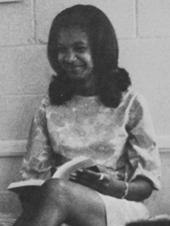 Sowing solidarity
Sowing solidarity
Penelope A. Baskerville ’68
In the midst of the Civil Rights movement, Penelope “Penny” A. Baskerville ’68 co-founded the Afro-American Society at Pembroke, a group that brought African-American students together from across the Ivy League.
- “I think [the Afro-American Society] was an expression of our need to try to establish some sort of identity. And we wanted to be a vehicle for reaching out into the Providence community and doing things like tutoring and to try and bring some sort of black-oriented cultural activities to campus. And [we wanted] to…formalize our public existence on campus.”
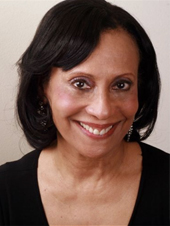 A career in the spotlight
A career in the spotlight
Jeree Wade '83
After years in show business, Jeree (Palmer) Wade ’83 earned an A.B. in theatre arts through the Resumed Undergraduate Education (RUE) program, flourishing in her professional singing, acting, and production career after Brown.
- “I always wanted to get a degree in theatre arts since that's what I did…And most of my academic background was teaching. I always taught. So... I did it. And it was wonderful. It opened a lot of doors for me, that when I came back to New York, I was able to produce, which was something I never did before. But I learned all of that while I was at Brown.”
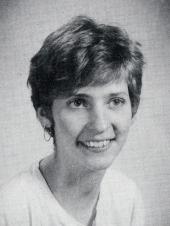 Breaking the silence
Breaking the silence
Martha N. Gardner ’88
As a feminist and LGBTQ+ activist, Martha Gardner ’88 helped organize a landmark women’s march and speakout protesting sexual harassment, gender discrimination, and homophobia at Brown in 1985.
- “People—even freshmen or first-year students this year—hear about it…I mean that’s one that continues to live and people realize what happened…The initial reaction the year after [the speakout] was: fraternities were listening. Individuals … were having sexism workshops, requesting them. Anyone who walked by couldn’t just say these are these angry men-hating women, it was women talking about their experiences and that was much more personal.”
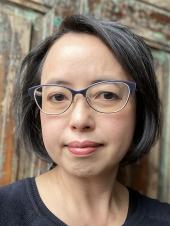 Rediscovering her heritage
Rediscovering her heritage
Kathy N. H. N. Le ’97
Born in modern-day Ho Chi Minh City during the Vietnam War Kathy Le ’97 emigrated to the US as a child just to later return to her home country as a research assistant for the Vietnam War Critical Oral History Project at the Watson Institute for International Studies. It was working on this project that ultimately led Le to become a United States Citizen.
- “I think I spent most of my teenage years and early years at Brown feeling like I’m trying to push away my Vietnamese background, experience, heritage, all of that. And then what really integrated me into Brown ended up being this project at the Watson Institute that I became a Research Assistant for. And this project was on the Vietnam War which, you know, [is] so ironic.”
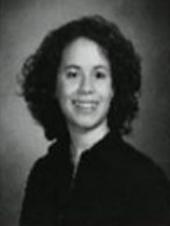 From theatre student to Encanto director
From theatre student to Encanto director
Charise K. Smith ’05
Having felt called to the arts from a young age, Charise Smith ’05 found a home in Brown’s undergraduate theater community. A first-generation Cuban-American herself, during the pandemic Smith worked as a co-writer and co-director of Disney’s 2021 hit, Encanto, the first Disney film to feature Columbian characters.
On storytelling:
- “Something that’s always been… fundamentally, foundationally important to me is to really expand and push the boundaries of the kind of stories that we tell and the kind of stories that we see and the kind of representation that’s in media and imagination because I think … what we imagine that we can do is based on what we see either in real life or 11 in the movies or on TV. And so, I take it really seriously this job of kind of making sure even if I’m writing characters that are doing bad things, just kind of trying to always push the boundaries of how people can imagine themselves and see themselves.”
On storytelling:
- “What we knew about it at that point was that it was going to be about a girl who was in a family and felt like she didn’t really fit in, felt different, felt less than. And it just felt so important to me to tell this story of a Latinx character who was imperfect and flawed and struggling, but full of love.”
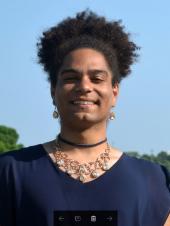 More than a name: An advocate for justice
More than a name: An advocate for justice
Justice A. Gaines ’16
An active participant in various student activism movements for racial equality, sexual assault prevention, and trans justice throughout her time at Brown, Justice Gaines ‘16 ultimately turned to poetry and fellow members of the queer community to fully understand her own identity as a trans women.
- “Through poetry, and through a lot of friends…I learned about gender. And I was learning the language of gender. And I was like, wow, you know, this fits really well. Freshman year, I had a really lovely conversation with some folks, just about what gender was, and how people felt…And something another person said during my time at Brown was, ‘I don’t need you to understand me, I need you to accept me, and we can work on understanding later.’ And that’s also really stuck with me.”
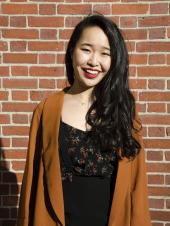 Changing the conversation on mental health
Changing the conversation on mental health
Yema T. Yang ’19
With hopes of addressing the stigma against mental illness, Yema Yang ’19 pursued her own independent concentration, Critical Mental Health Studies, and became a resource for Brown students dealing with mental illness.
- “I started realizing that I was actually not just an ally, I was someone with lived experience. And so I started being more involved in the community in that right, because I could identify with it in that way. I think having Project LETS [Let’s End the Stigma] and that community…so that I could figure out my identity, so I could be embraced as I was, rather than dismissed, was very crucial to me being able to have an identity-positive lens on myself in terms of mental illness and disability…I see myself as a scholar activist.”
 From College Hill to Cuba
From College Hill to Cuba
 Ahead of her time
Ahead of her time
 A voice for the war effort
A voice for the war effort
 Sowing solidarity
Sowing solidarity
 A career in the spotlight
A career in the spotlight
 Breaking the silence
Breaking the silence
 Rediscovering her heritage
Rediscovering her heritage
 From theatre student to Encanto director
From theatre student to Encanto director
 More than a name: An advocate for justice
More than a name: An advocate for justice
 Changing the conversation on mental health
Changing the conversation on mental health